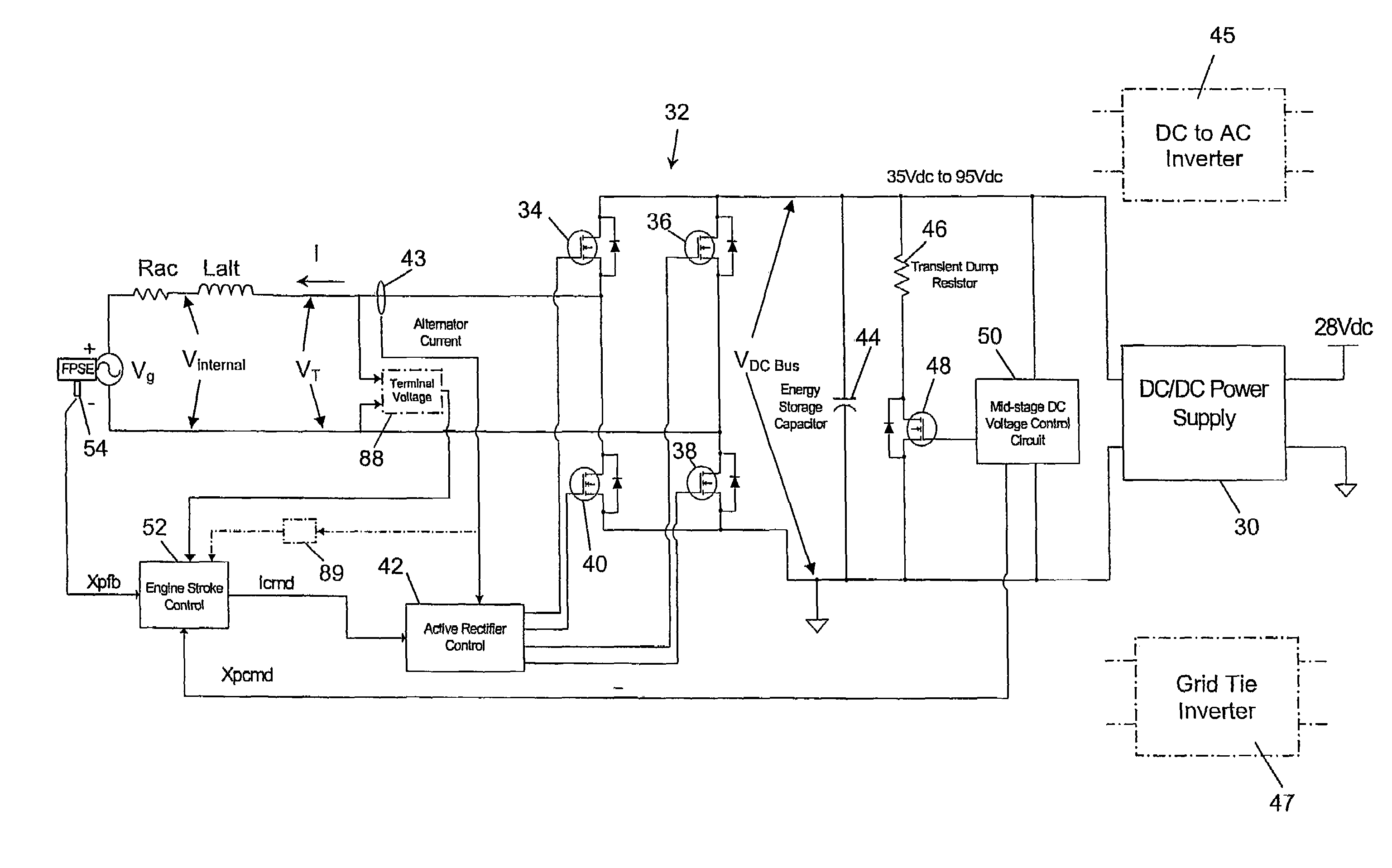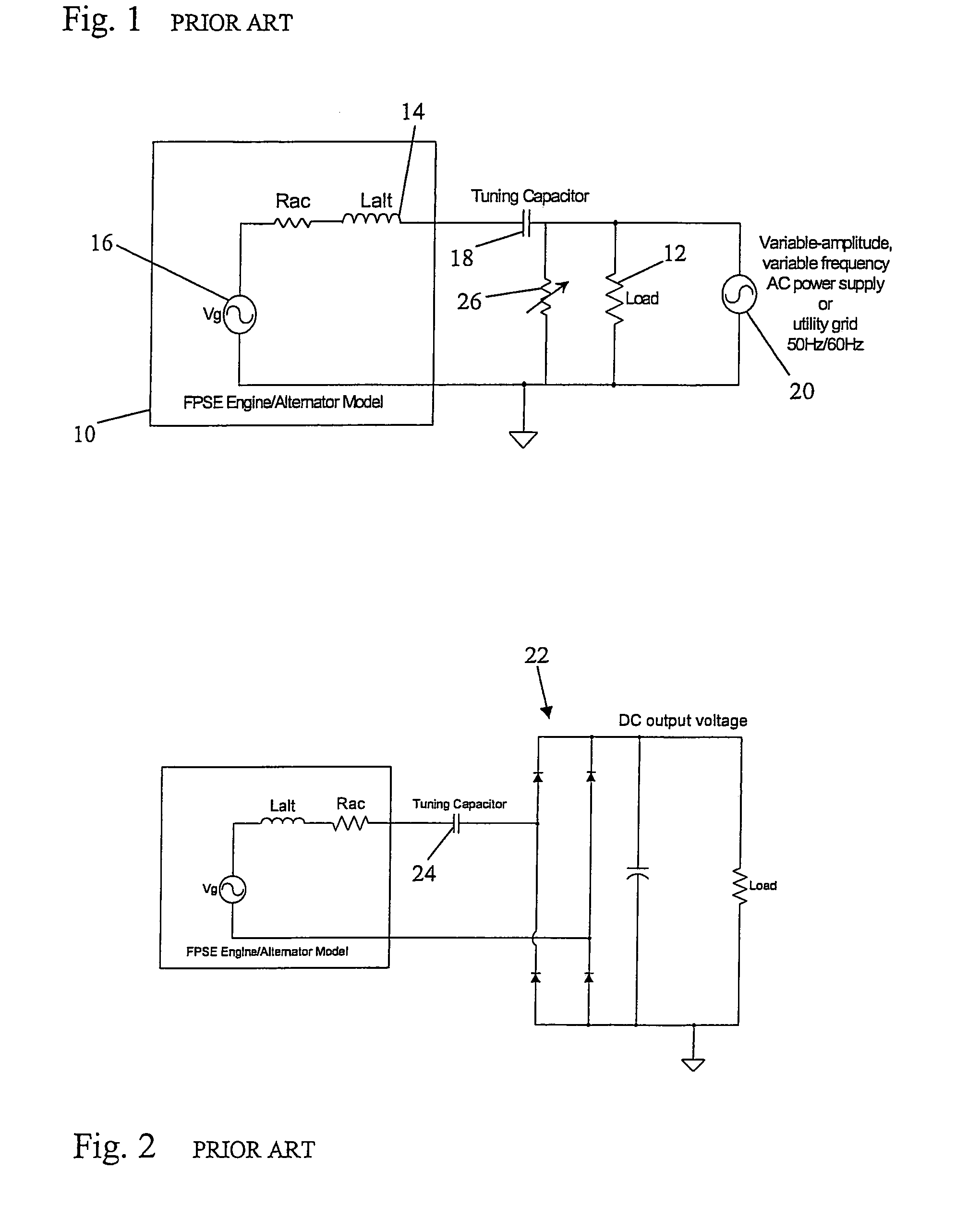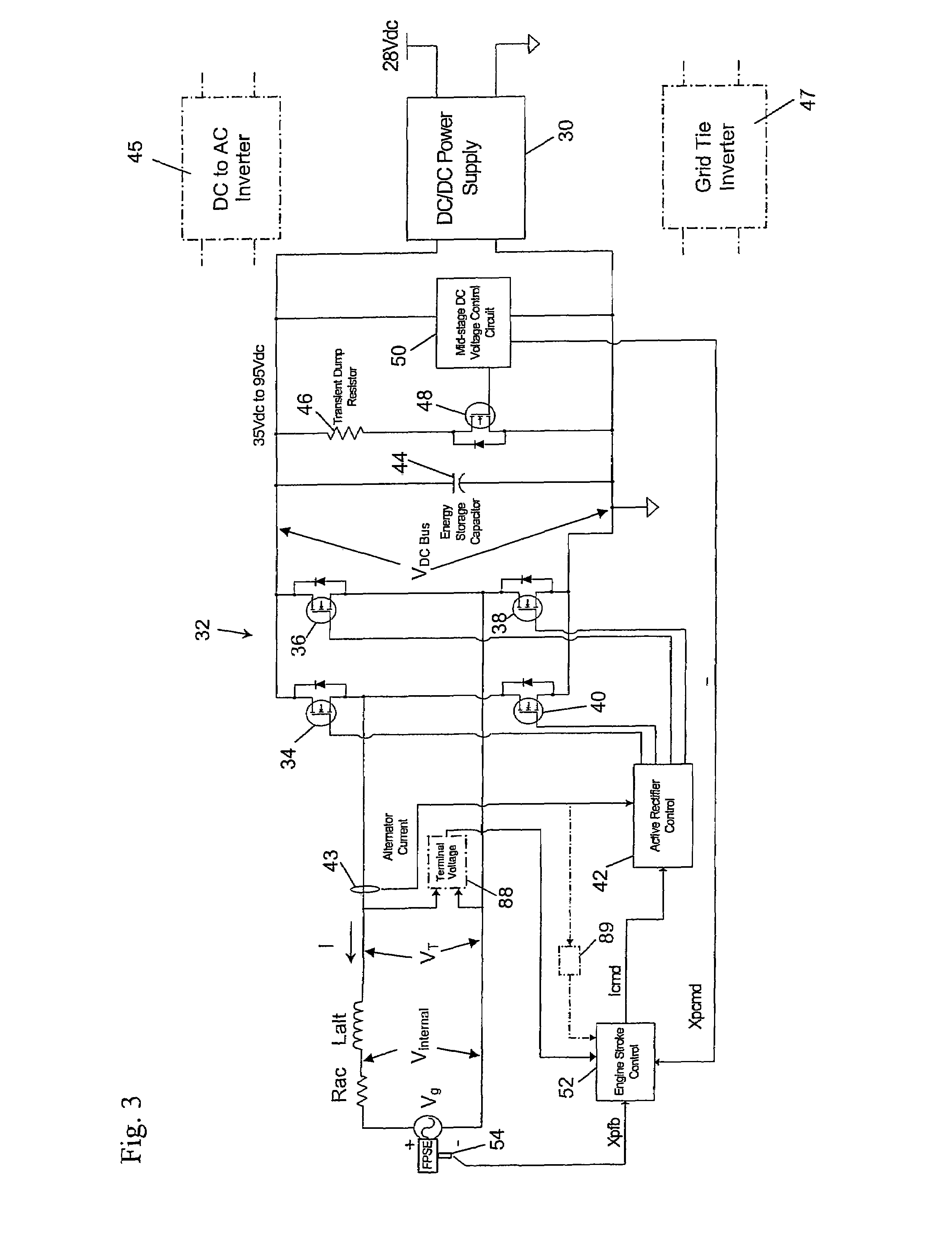Electronic controller matching engine power to alternator power and maintaining engine frequency for a free-piston stirling engine driving a linear alternator
a linear alternator and electric controller technology, applied in the direction of motor/generator/converter stopper, dynamo-electric converter control, instruments, etc., can solve the problems of engine stall, damage to internal collisions, and bulky and expensive tuning capacitors
- Summary
- Abstract
- Description
- Claims
- Application Information
AI Technical Summary
Problems solved by technology
Method used
Image
Examples
Embodiment Construction
[0026]The apparatus of the invention is an improved, free-piston Stirling engine driving a linear alternator having its output current controlled by a switching mode rectifier where the improvement comprises a combination of particular negative feedback control loops controlling the switching mode rectifier. The concepts of the invention are best illustrated by means of a feedback control loop diagram of the type that those skilled in the feedback control art are familiar with. However, the feedback control loop diagram can be better understood if preceded by an explanation of an embodiment of the physical circuitry that is represented by the feedback control loop diagram. This description of the invention includes several variables and parameters and they are collected together and defined at the end of this description.
[0027]FIG. 3 is a schematic diagram of an embodiment of the invention. The alternator that is driven by the free-piston Stirling engine is, as in FIGS. 1 and 2, sho...
PUM
 Login to View More
Login to View More Abstract
Description
Claims
Application Information
 Login to View More
Login to View More - R&D
- Intellectual Property
- Life Sciences
- Materials
- Tech Scout
- Unparalleled Data Quality
- Higher Quality Content
- 60% Fewer Hallucinations
Browse by: Latest US Patents, China's latest patents, Technical Efficacy Thesaurus, Application Domain, Technology Topic, Popular Technical Reports.
© 2025 PatSnap. All rights reserved.Legal|Privacy policy|Modern Slavery Act Transparency Statement|Sitemap|About US| Contact US: help@patsnap.com



